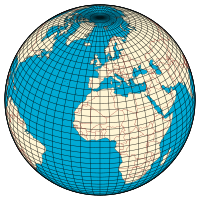
Photo from wikipedia
Abstract The detection and identification of Resident Space Objects (RSOs) from survey tracks requires robust and efficient orbit determination methods for the association of observations of the same RSO. Both… Click to show full abstract
Abstract The detection and identification of Resident Space Objects (RSOs) from survey tracks requires robust and efficient orbit determination methods for the association of observations of the same RSO. Both Initial Orbit Determination (IOD) and Orbit Determination (OD) methods perform the orbital estimation in which the association of tracks relies. The choice of proper IOD and OD methods is essential for the whole data association, since they are in charge of providing the estimation required to evaluate the figure of merit of the association. In this paper, we review the state of the art and propose a novel method that does not require initialisation, accounts for measurement noise and provides a full estimation (i.e., state vector and covariance) from an arbitrary number of optical observations. To do so, a boundary value problem is formulated to find a pair of ranges leading to a minimum residuals of the observations. The proposed methods are compared against classical alternatives simulated in scenarios representative of the current space debris environment.
Journal Title: Advances in Space Research
Year Published: 2021
Link to full text (if available)
Share on Social Media: Sign Up to like & get
recommendations!